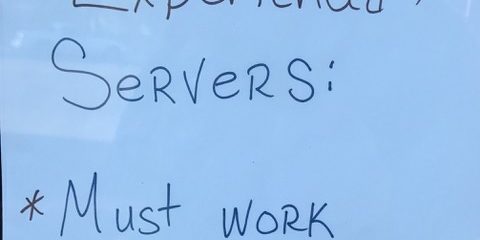In my last column, I asked: “Are They Better Than Nothing?” — meaning employees in our companies who may be doing more harm than good. In this column, let’s get more positive and look at how to build your “A” Team.
It’s clear we accomplish more together as a team, than as individuals. So as owners, we must learn to lead teams, not just direct individuals. About 29 million businesses exist in the USA today, and over 96% of these businesses have fewer than 10 employees. One stat I saw is, in 2018, only 5% of surveyed full-time businesses had more than $1 Million in revenue. I believe the reason the vast majority of businesses never break through $1 Million, is because the owner/founder never really developed the skills needed to effectively create and manage a team. Now, absolutely nothing is wrong with a $1 Million revenue business. But if your goal is to go beyond that mark, you’ll need a team to power you and your company through it.
Identify Your Core Values. Use Them as Hiring and Team-Building Filters.
It’s all about selection. Last Sunday, I enjoyed dinner with a young entrepreneur, Adam. His revenues are about $750K annually and he really wants to “Break On Through to the Other Side” of $1 Million. I asked Adam to share both his personal and his business core values. It turns out, those values are identical: Work Hard, Play Hard, Have Fun, and Treat Everyone the Same. He’s concerned his first-hired, non-production employee, a salesperson named Paul, isn’t working out. I asked, “Does Paul share most of those core values?” Adam said he didn’t think Paul shared ANY of those core values. So, as I often hear from early-stage entrepreneurs, Adam said he was going to make “fixing” Paul his Spring project. I countered Adam’s time would be infinitely better spent moving Paul out to another organization where Paul could make a positive contribution, and instead finding someone who was a better fit for Adam’s company.
In his book, The Ideal Team Player, Patrick Lencioni describes the three “Virtues” which make up his personal core values AND are the filters by which he brings people into his business team. Lencioni’s virtues are: Hungry, Humble, and Smart. If you really want clarity on Lencioni’s team Virtues, then you’ll need to read his book (which I highly recommend). But the point now is Lencioni knows his core values, and he uses them as his filters for hiring.
Operationalize Your Core Values.
So, you’ve accurately identified your core values. But now, how do you operationalize them for effective hiring (and firing)? First, you must spend time, carefully and thoughtfully, further defining and dissecting your core values. What do these values look like, day-to-day, every day, in your organization? Then, develop and consistently employ a set of behaviorally-based interview questions. Look for real life situations where your potential, future team member actually exhibited and embodied your core values. Truly beware of people who provide only hypothetical examples – it may mean they cannot recall ever living your core values. Caution!
Another great idea from Lencioni’s book is to use unconventional interview techniques. For example, ask the candidate to go for a ride or run errands with you. How do they interact with you and with strangers along the way? How do they treat service people? How do they handle an unusual situation? One famous CEO would request the restaurant ruin his interviewee’s meal at dinner to gauge the reaction of that potential hire.
Finally, get ALL the pertinent background information you can. I am always shocked at how few companies do any type of even rudimentary, pre-employment assessments. I wouldn’t hire a dog-sitter without at least doing a personality assessment. And I’d never hire a “C” level executive without having an industrial psychologist do an in-depth interview and analysis.
Unfortunately, in my career, I have plenty of experience hiring somebody who was not “The Ideal Team Player.” The cost for hiring mistakes can be astronomical; sometimes those mistakes irreparably break a small business, sometimes even a big business (Think Enron). We will never be perfect at selecting members for our teams. But if you truly want to break on through and blow past the “Other Side” of whatever business goal you have set in front of you, you’re going to need an A team as your power engine. Start building it!








